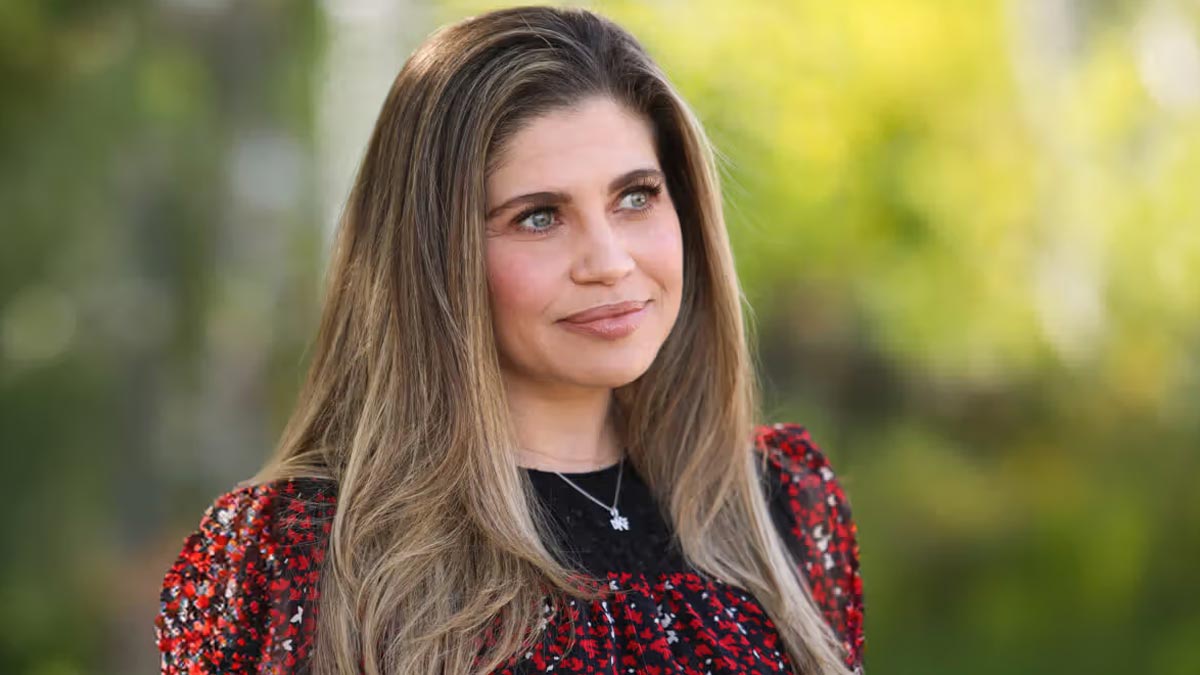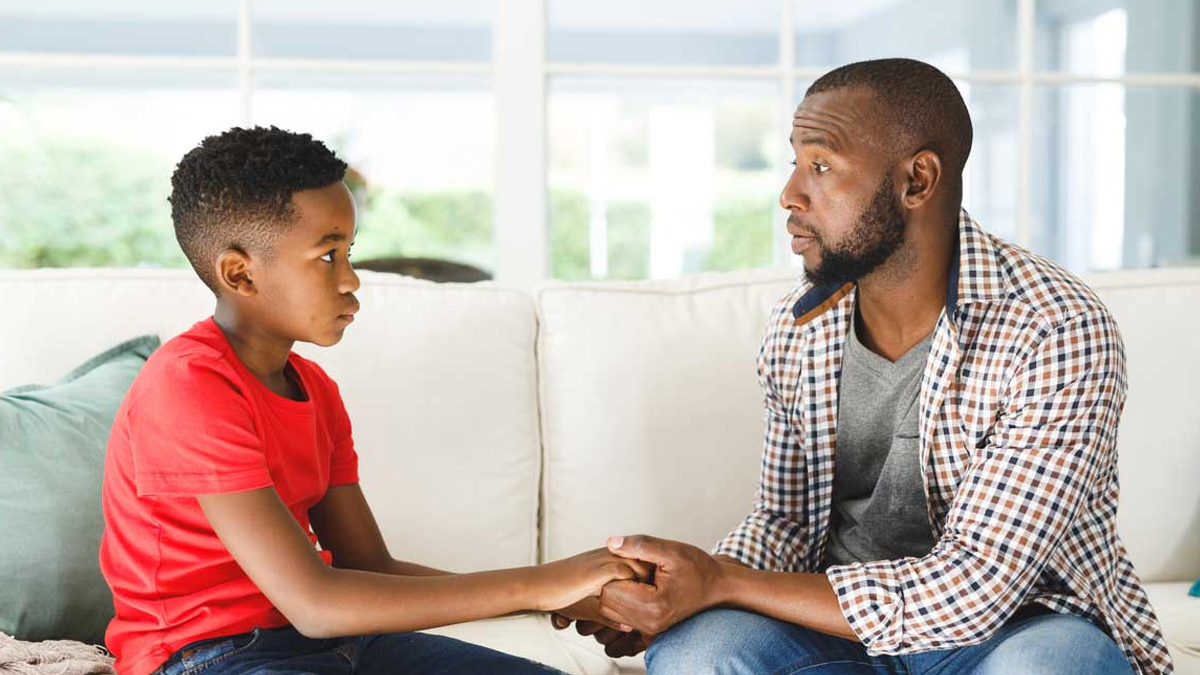
Actress Danielle Fishel recently opened up about her experience of discussing her breast cancer diagnosis with her family, shedding light on the delicate process of sharing such difficult news with her young children. In a heartfelt episode of the Amy & T.J. Podcast, Fishel shared the challenges of explaining her health condition to her husband and two sons, ages five and three. Her story provides valuable insights into how to handle conversations about illness with children, emphasizing the importance of honesty and sensitivity.
Table of Content:-
Navigating the Tough Conversation With Family
Fishel’s journey began when she was diagnosed with an early form of breast cancer, ductal carcinoma in situ (DCIS), following a routine mammogram. What made the situation even more emotional was the impact it would have on her family. Her husband, Jensen Karp, had already endured the loss of his mother to lung cancer in 2022, an experience that weighed heavily on both of them. Fishel shared her concern about telling Karp, given the emotional toll his mother’s death had taken on him.
Her biggest challenge, however, came when it was time to address the issue with her children. Fishel was particularly worried about her oldest son, Adler, who had been very close to his grandmother and had struggled to understand her passing. The actress feared that talking about cancer might create confusion or fear in her young son, leading him to associate all illnesses with death. To avoid alarming her children, Fishel chose a gentler approach, telling them she had a "boo boo" that had been removed.
View this post on Instagram
How Fishel Handled the Discussion With Her Kids
Rather than burden her sons with the complexities of cancer, Fishel opted to simplify the explanation for their age level. She told her boys that she had a "boo boo" and needed to be careful during playtime while she healed. This allowed her to maintain their sense of safety while still being honest about her condition in an age-appropriate way. Fishel's approach also ensured that her sons didn’t develop unnecessary fears about common illnesses, like colds or the flu, equating them with serious diseases.
Her strategy worked well for her family. Adler eventually noticed when she had fully recovered and was able to roughhouse again, prompting him to ask if she was better. This gave Fishel an opportunity to confirm that her "boo boo" was healed, reinforcing the message that not all health issues result in long-term consequences.
Also Read: Jennifer Lawrence Expecting Second Child; How Does Second Pregnancy Differ From the First?
Guide to Talking to Children About Cancer
For parents dealing with cancer, talking to children about the diagnosis can be an incredibly difficult task. However, open communication is crucial for helping children process the situation in a healthy way. Here are some tips that parents can use when addressing the topic of cancer with their children:
Tailor the Conversation to Their Age
The language and depth of information you share should be based on your child’s age and understanding. Younger children may only need to know that their parent is sick and being treated, while older children may need more details about the illness and treatment plan.

Be Honest, But Keep It Simple
Honesty is important, but it’s also crucial to avoid overwhelming your child with more information than they can handle. Fishel’s decision to explain her cancer as a "boo boo" is a great example of how parents can be truthful while keeping explanations simple and reassuring.
Address Fears and Misconceptions
Children may develop irrational fears about illness, especially if they’ve experienced the death of a loved one, as Fishel feared her son might. It’s essential to explain that not all sicknesses lead to death and that many people recover from cancer with treatment.
Also Read: Christina Aguilera Shares Knee Issues From High Heels: Here’s Why They Are Bad for You
Create a Supportive Environment
Encourage your children to ask questions and express their feelings. Let them know it’s okay to feel sad, confused, or even angry. Fishel’s experience shows that by creating an open environment, children can feel more comfortable discussing their fears and emotions.
Prepare Yourself Before the Conversation
Take time to plan how you want to approach the conversation. It can be helpful to rehearse what you’ll say or even jot down key points. If you feel unsure, consider seeking advice from a healthcare professional or counsellor. Fishel’s approach reflects careful consideration of her children’s emotional needs and her own readiness to handle the topic.
Offer Reassurance
Above all, children need to feel safe and secure during such conversations. Assure them that they are loved and that your medical team is doing everything possible to ensure your recovery. Fishel’s gentle handling of her children’s fears helped them maintain a sense of normalcy during her recovery.
Bottomline
Danielle Fishel’s story serves as an excellent example of how parents can approach the sensitive topic of illness with young children. By carefully choosing her words and considering her children’s emotional well-being, she was able to foster open communication without creating unnecessary fear. For any parent facing a similar situation, Fishel’s approach offers valuable lessons on balancing honesty and reassurance when discussing serious health matters with children.
Also watch this video
How we keep this article up to date:
We work with experts and keep a close eye on the latest in health and wellness. Whenever there is a new research or helpful information, we update our articles with accurate and useful advice.
Current Version